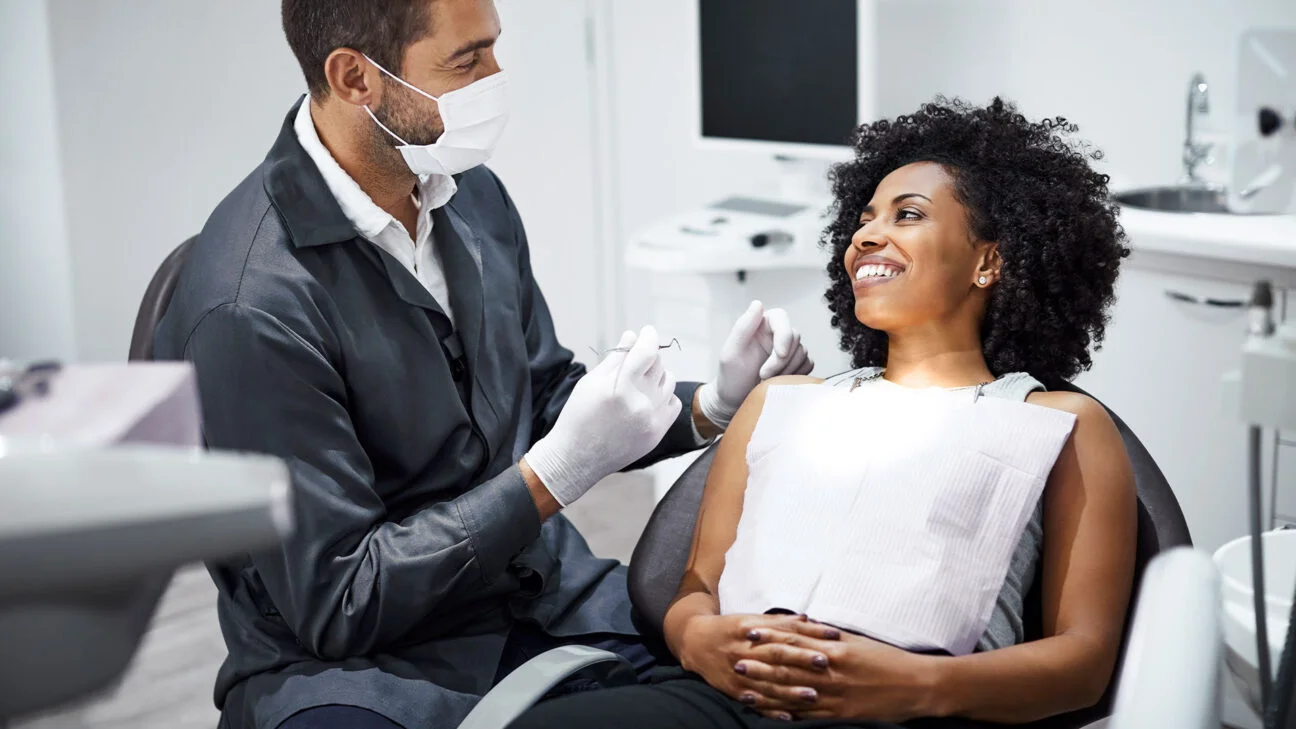Have you ever felt your heart race at the mere thought of a dental appointment? Or maybe you've experienced sweaty palms and an overwhelming sense of dread as you sit in the waiting room. If so, don't worry — you're not alone. Dental anxiety is a common condition that affects countless individuals worldwide.

Understanding Dental Anxiety
Dental anxiety, also known as dental phobia, refers to the fear or nervousness that people experience when faced with a dental appointment. It goes beyond just feeling a bit uneasy; it can be an overwhelming and irrational fear that prevents individuals from seeking necessary dental care.
The triggers for dental anxiety can vary widely from person to person. For some, it may stem from a traumatic experience at the dentist's office. Others may feel anxious due to the sights, sounds, or smells associated with dental procedures. Fear of pain or injections is also a common cause of dental anxiety.
The physical symptoms of dental anxiety can be distressing — increased heart rate, sweating palms, difficulty breathing — all making a trip to the dentist seem like an insurmountable challenge. This intense level of apprehension often leads individuals to avoid visiting their dentist altogether, putting their oral health at risk.
Causes of Dental Anxiety
- One of the main causes of dental anxiety is past traumatic experiences. If someone has had a painful or negative encounter during a previous dental visit, it can create long-lasting fear and apprehension about future appointments.
- Another factor could be a fear of needles or injections. The thought of having a needle inserted into their gums for anesthesia can cause extreme distress for individuals with this phobia.
- Some people may also feel anxious due to feelings of helplessness or loss of control while sitting in the dentist's chair. The unfamiliar environment, strange noises, and even the smell associated with dental clinics can intensify these feelings.
- Additionally, individuals who struggle with a general anxiety disorder may find themselves experiencing heightened levels of stress when faced with any medical procedure, including dentistry.
- Societal influence plays a role in shaping our perception of dentists and oral health care. Negative portrayals in movies and television shows often depict dentists as scary and painful figures, which perpetuates fear among individuals.

Tips for Managing Dental Anxiety During a Visit
If you experience dental anxiety, here are some helpful tips to help manage your fears and have a more comfortable visit to the dentist:
- Communicate: Don't hesitate to let your dentist know about your anxiety. They can provide reassurance and explain each step of the process before starting any treatment. This open line of communication can alleviate much of your fear.
- Deep breathing: Practice deep breathing techniques during your appointment. Inhale slowly through your nose, hold it for a few seconds, then exhale through your mouth. This simple technique helps relax both body and mind.
- Distraction techniques: Bring headphones and listen to calming music or an audiobook during the procedure to divert attention away from what's happening in your mouth.
- Visualization: Picture yourself in a calm and peaceful place while focusing on positive thoughts during the treatment.
- Take breaks if needed: If you feel overwhelmed during the appointment, ask for breaks between procedures or take short pauses when necessary.
- Explain Your Concerns: Informing dental staff about specific concerns that trigger anxiety can help them tailor their approach accordingly.
Sedation & Dental Anxiety
For many people, the thought of sitting in a dental chair can cause intense fear and anxiety. This is where sedation dentistry comes into play. It involves the use of medication to help patients relax during dental procedures.
- There are different levels of sedation that can be used depending on the individual's needs. Nitrous oxide, also known as laughing gas, is commonly used for mild sedation. It helps to calm nerves and reduce discomfort.
- For those with moderate to severe anxiety, oral conscious sedation may be recommended. This involves taking a pill before the appointment to induce a state of relaxation. Patients remain awake but are less aware of their surroundings.
- Intravenous (IV) sedation is another option for those who experience extreme dental anxiety. Medications are administered directly into the bloodstream, allowing for deeper relaxation or even sleep during the procedure.
- Local anesthesia is still typically used to numb the area being treated.
If you're considering sedation dentistry, it's crucial to discuss your fears and concerns with the dentist beforehand. We will evaluate your medical history and determine which type of sedation is best suited for you.

Frequently Asked Questions
1. How does dental anxiety affect oral health?
When someone experiences dental anxiety, they may avoid seeking regular dental care, leading to potential oral health issues going undiagnosed and untreated. This can result in more significant problems down the line, including tooth decay, gum disease, and even tooth loss.
2. Can sedation dentistry help with dental anxiety?
Yes! Sedation dentistry involves using medication to help patients relax during their dental procedures. Depending on the level of sedation required, options may include nitrous oxide (laughing gas), oral sedatives, or intravenous (IV) sedation.
3. Is it possible to overcome dental anxiety completely?
While everyone's journey is different, it is certainly possible to reduce the impact of dental anxiety over time. This can be done through exposure therapy — gradually exposing oneself to increasingly challenging situations related to dentistry while learning coping mechanisms along the way.
So don't let dental anxiety hold you back from achieving optimal oral health! Take charge of your fears today, and make sure to prioritize regular dental checkups for a confident smile and overall well-being.
Visit Our Office
Office Hours
- MON - THU8:30 am - 5:00 pm
- FRIBy appointments only
- SAT - SUNClosed
